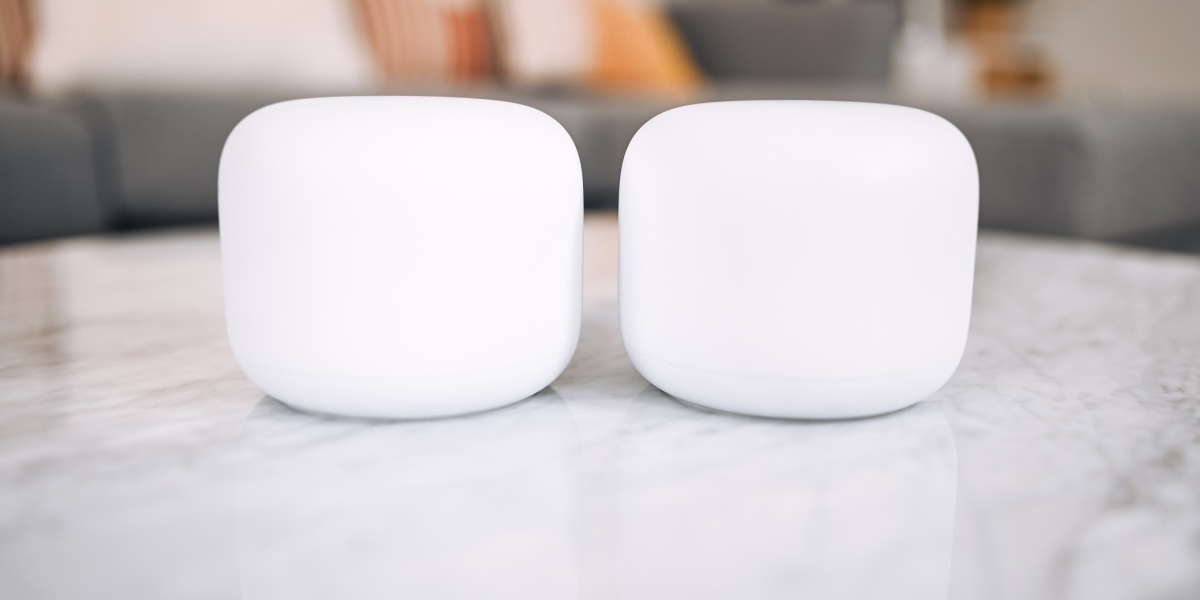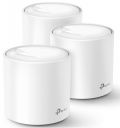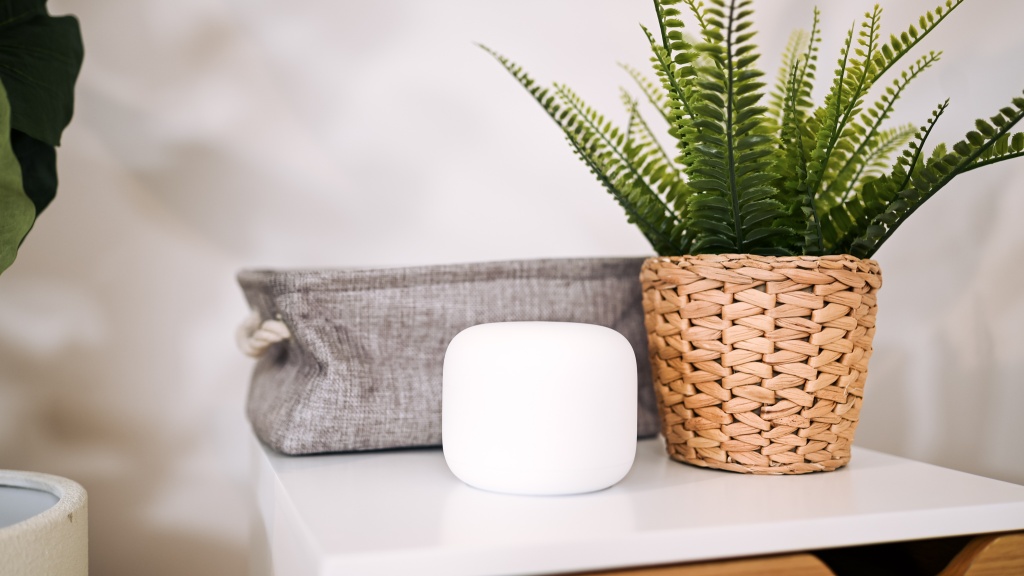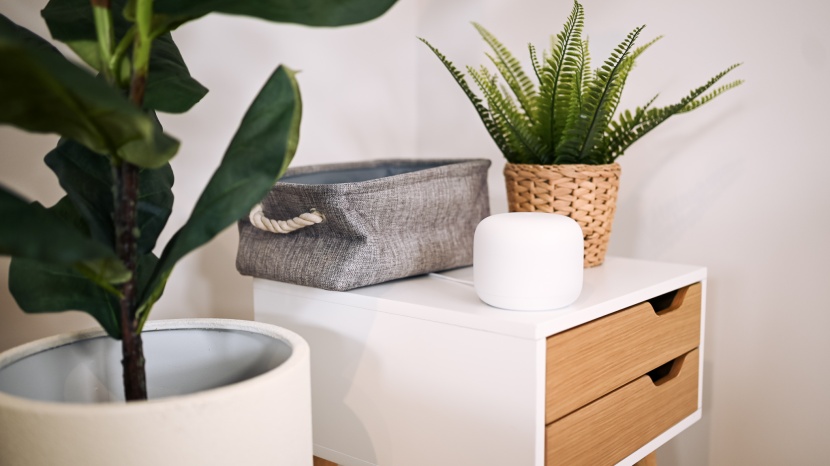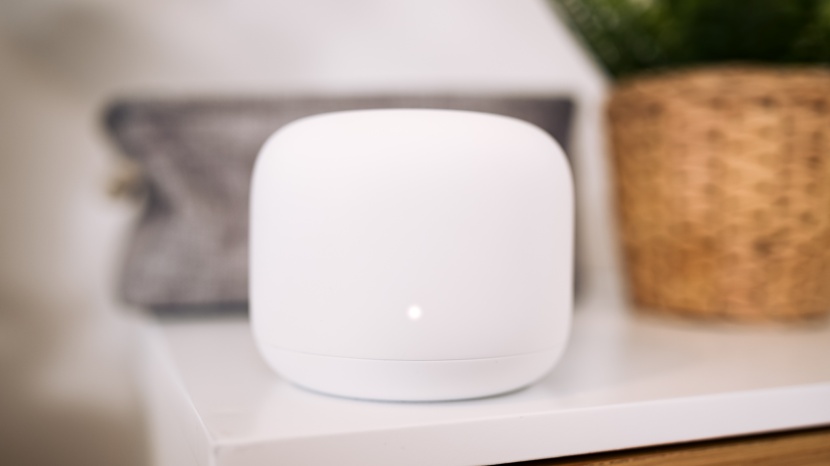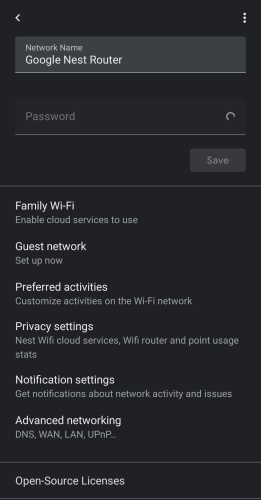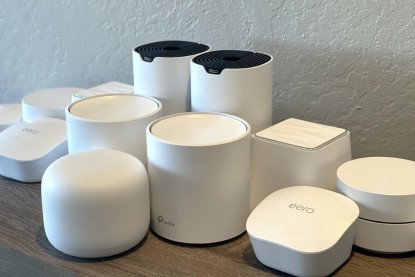Our Verdict
Compare to Similar Products
 This Product Google Nest WiFi | |||||
|---|---|---|---|---|---|
| Awards | Best Bang for the Buck | Best Overall Mesh System | Best Coverage | ||
| Price | $338 List $99.99 at Amazon | $270 List $139.99 at Amazon | $450 List $177.83 at Amazon | $170 List $129.99 at Amazon | $148 List $99.98 at Amazon |
Overall Score  |
|||||
| Star Rating | |||||
| Bottom Line | A budget-friendly mesh router that performs well and has great features | A top-performing WiFi mesh system with MU-MIMO, WiFi 6, and OFDMA | A top-performing mesh router that looks great and comes with exceptional features | This middling router has good 2.4 GHz throughput for a low price point | A cheap option that doesn't do the job well |
| Rating Categories | Google Nest WiFi | TP-Link Deco X20 | Linksys Atlas Pro 6... | TP-Link Deco M5 | TP-Link Deco S4 |
| 2.4 GHz Throughput (35%) | |||||
| 5 GHz Throughput (35%) | |||||
| Range (20%) | |||||
| Ease of Use (10%) | |||||
| Specifications | Google Nest WiFi | TP-Link Deco X20 | Linksys Atlas Pro 6... | TP-Link Deco M5 | TP-Link Deco S4 |
| Wi-Fi Version | WiFi 5 | WiFi 6 | WiFi 6 | WiFi 5 | WiFi 5 |
| Wireless Specification | Dual Band | Dual Band | Dual Band | Dual Band | Dual Band |
| Frequency | 5 GHz 2.4 GHz |
5 GHz 2.4 GHz |
5 GHz 2.4 GHz |
5 GHz 2.4 GHz |
5 GHz 2.4 GHz |
| Processor | 1.4 GHz Quad-core 64-bit ARM | 1.0 GHz Dual-Core | 1.0 GHz dual-Core | Qualcomm 717 MHz Quad-core | Qualcomm CPU |
| Memory | 4 GB Flash 1 GB RAM |
N/A | 256 MB Flash 512MB RAM |
N/A | N/A |
| MU-MIMO | Yes | Yes | Yes | Yes | Yes |
| OFDMA | No | Yes | Yes | No | No |
| Beamforming | Explicit only | Explicit only | Explicit only | Explicit only | Explicit only |
| Security | WPA/WPA2/WPA3 - Personal WPA/WPA2 - Enterprise |
WPA/WPA2/WPA3 - Personal WPA/WPA2 - Enterprise |
WPA/WPA2/WPA3 - Personal WPA/WPA2 - Enterprise |
WPA/WPA2 - Personal WPA/WPA2 - Enterprise |
WPA/WPA2 - Personal WPA/WPA2 - Enterprise |
| LAN Ports Available | 1 | 1 | 3 | 1 | 1 |
| USB Ports | None | None | None | None | None |
| Antenna | N/A | 2 - Internal | 5 - Internal | 4 - Internal | 2 - Internal |
| Wall Mountable | No | No | No | No | No |
| Wireless On/Off Button | No | No | No | No | No |
| LED On/Off | Yes | Yes | Yes | Yes | Yes |
Our Analysis and Test Results
The Google Nest WiFi is a great option for those looking to expand their Google smart home or start one. The WiFi system is conveniently controlled through the Google Home app, which also controls smart items like lights, fans, thermostats, and more. The system has some of the best features, like parental controls and device prioritization. Unfortunately, the Nest does not have WiFi 6, which is worth considering if future-proofing your home is your objective.
2.4 GHz Throughput
Most homes will have barriers of some sort, whether that be walls or furniture. These barriers can often create dead spots. Mesh systems work to eliminate these spots by veiling WiFi throughout the home. To determine how well these systems did, we measured the throughput of the 2.4 GHz band through a series of tests. We started nine feet away from the router and measured the Megabits per second (Mbps). We then blocked the path with a wall and remeasured the speeds. We did the same test at 35 feet. At 70 feet, we measured the obstructed speeds only. We didn't bother to measure an unobstructed path as most buildings don't have an open 70-foot room without some sort of barrier.
The Google Nest WiFi landed in a group of average-performing routers. The highest speed was measured at the nine-foot mark, with 81 Mbps. The speed dropped slightly to 78 Mbps when this nine-foot path was obstructed, though this is to be expected. The 35-foot mark showed average results of roughly 66 Mbps. At 70 feet, the measured speed was 17 Mbps, which is slightly higher than others in the lineup.
5 GHz Throughput
Next, we switched to the 5 GHz band and measured the speeds in Mbps. This test was essentially the same as the 2.4 GHz test. We started up close at nine feet from the router. We took measurements with both obstructed and unobstructed paths. We then repeated this test at 35 feet. At 70 feet, we measured the speeds with obstructions in its path.
The Nest was a top performer in our 5 GHz throughput test. The throughput started out average at the nine-foot unobstructed point with speeds of 316 Mbps. However, it consistently kept this speed, outperforming most of the other mesh systems in our lineup. At the 70-foot point, the throughput speed was measured at 89 Mbps. That's double the average speed at this distance.
Range
To test the range of each system, we pulled up the same YouTube video and played it on 1080p. Without refreshing the page, we simply walked away from the router in 10-step increments, noting the point at which buffering started. We did this test for both the 2.4 and 5 GHz bands.
The Google Nest did an average job with the 2.4 GHz band and slightly better with the 5 GHz band. With the 2.4 GHz band, buffering began 80 feet away from the router. Likewise, buffering began 100 feet from the router for 5 GHz. If WiFi range is what you're searching for, this mesh system is easily expandable with additional routers or Google Nest Points.
Ease of Use
Finally, we assessed the ease of installation and user-friendliness of each product. Specifically, we looked into the accompanying mobile app, parental controls, QoS, and other WiFi settings. To get started with the Google Nest WiFi, one must first download the Google Home app. The setup is fairly straightforward. Simply scan the QR code, and the app will walk you through the rest. Unfortunately, there is no computer setup option available. So, you'll need a smartphone to get this going.
The Nest has many great features for those who already have Google smart homes. The Google Home app is the same app that controls devices like the Google Nest Thermostat, the Google Nest Cam, lighting, fans, appliances, and more. We appreciate that everything is bundled up in one app, making it more convenient to take care of your smart home. Within the WiFi tab, you'll find the controls for this mesh system. Among these are parental controls, prioritization of devices, and network controls.
The parental controls, or Family WiFi, allow you to set schedules for when the WiFi will be shut off for specific devices or groups. The grouping feature allows you to add devices to specific family members. With one tap, you can pause access to all devices within the group. Additional parental controls are available, with options to block specific sites, apps, and content. The app also has a great prioritization function. Through this, you are able to choose which phone, tablet, computer, or TV receives more bandwidth.
Google also made it fairly simple to prioritize devices using the Google Home app. You can easily allow more bandwidth to specific devices, including phones, TVs, and computers. Additionally, the app includes easy-to-use network controls, giving you the power to share your WiFi with friends and run speed tests on routers. All these features are available at any point, regardless of if you are home or not. Additionally, Google Assistant is incorporated into this mesh system. You are able to control almost anything that is part of your Google smart home, including lighting, music, WiFi settings, and more.
Should you buy the Google Nest WiFi?
The Google Nest WiFi is a great option for those who have a Google smart home or are looking to build one. This system is easily integrated into the Google Home app. However, you don't need a smart home to enjoy this mesh system. The system is easy to use and includes great features like parental controls and QoS. Additional Google Nest Points can be purchased to expand the network. These have built-in smart speakers with Google Assistant. This product is on the cheaper side, which is great. However, it wasn't a top performer in our throughput and range tests. If you have a larger home, you might need to purchase additional routers or points, which could quickly get expensive. In addition, this system does not have WiFi 6.
What other WiFi Mesh System should you consider?
Our top-performing system was the TP-Link Deco X20. This system performed exceptionally in all of our tests. The Deco also has great features like parental controls, and this product won't break the bank. For the best of the best when it comes to range, take a look at the Linksys Atlas Pro 6. This system is on the pricier side but performs well and includes WiFi 6.


